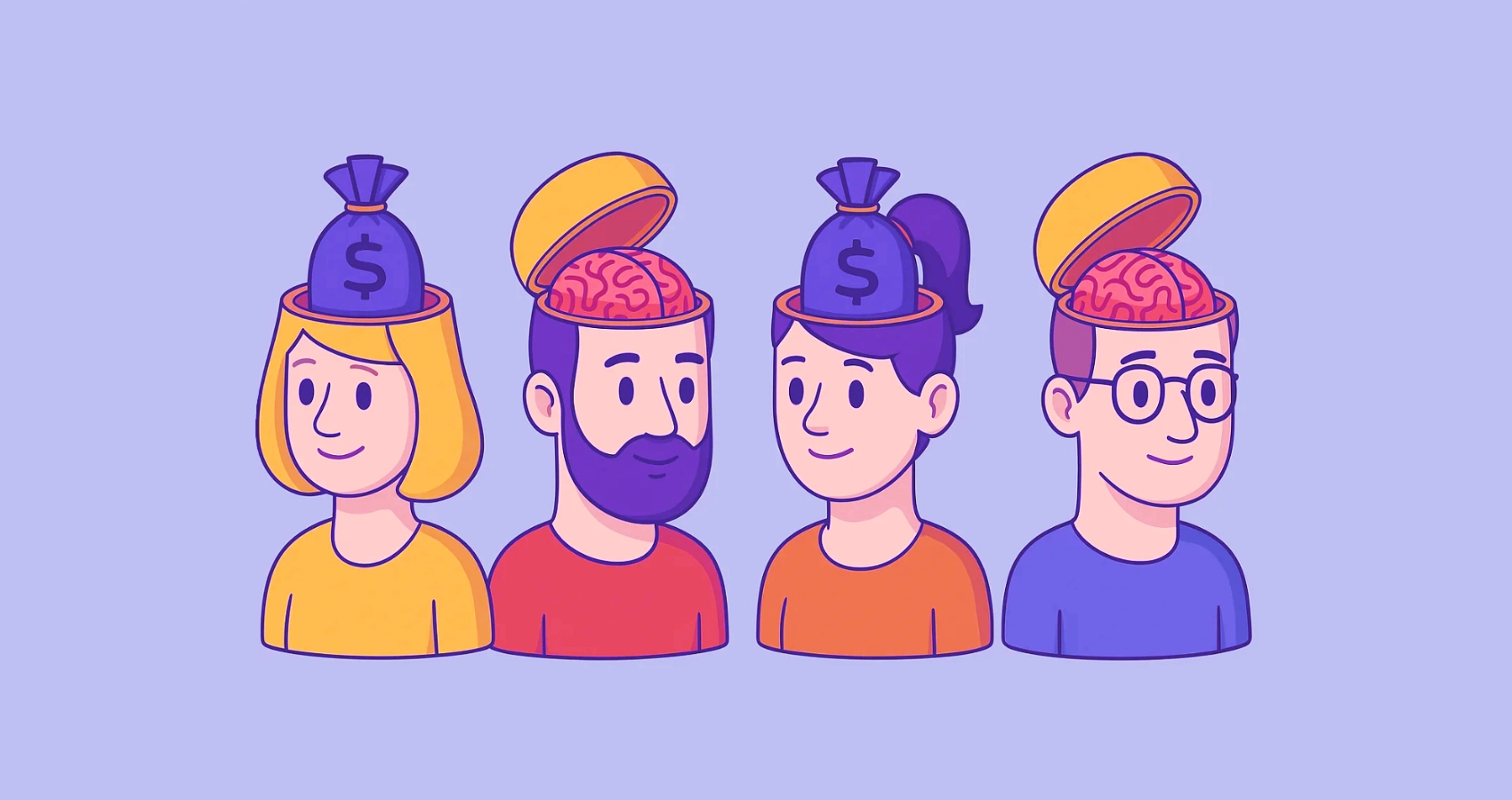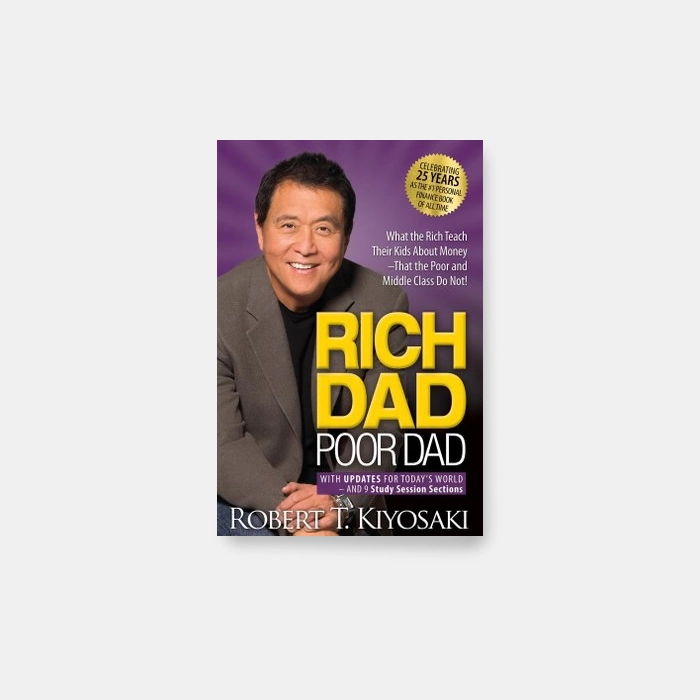The money manual nobody gave us
Did anyone ever hand you a guide on how to think about money? How to save it, spend it, or even feel about it? Yeah… me neither. School drilled us on algebra and grammar but never touched on the emotional or practical side of managing money. And unless your parents were financial wizards (which, let’s be honest, most weren’t), chances are, you grew up without a solid money mindset.
We can proudly say that -as freelancers- we have chose the scenic route, but turns out, they still forgot to teach us the ABCs of a good money mindset. So, let’s talk about it. Not just how to make more, but how to think differently, so you can stop feeling poor, stuck and start feeling in control.
Where our money beliefs are born
There’s this notion of three wealth tiers worldwide – a mere 5% basks in wealth, 15% snug in the middle class, and the rest of us, a whopping 80%, find ourselves in the not-so-enviable “poor” category. Or if you look at the distribution of wealth from Credit Suisse, you’ll see that they even put 55% of adults in the “miserable” category.
Most of us never consciously chose our beliefs about money. They were quietly handed down to us through childhood. You might’ve grown up watching your parents juggle bills, stretch every euro, or argue over spending. Or maybe you were raised in a financially comfortable home but felt the underlying stress of keeping up appearances or holding onto wealth like it could vanish any second.
Either way, those early patterns stick. They settle deep in our subconscious, shaping how we save, spend, worry, and hustle. You might chase money endlessly. Or struggle to hold onto it. Or panic the moment you have any. That tension? It started way before your first invoice.
Money-related anxiety is a widespread emotion, a true paradox considering that 80% of us (if we follow the three-tier theory) hold fears about a commodity we use every single day. It’s not just your upbringing either, look around. The news. Banks. Governments. Insurance companies. None of them are making this stuff easier to understand. If anything, they benefit from us staying confused.
For me, I had two conflicting money narratives growing up, one parent saw money as a never-ending headache, while the other saw it as the answer to everything. I carried both of those ideas into adulthood until I realised they weren’t helping. So, I started rewriting my own money story.
Unmasking the excuses and breaking the cycle
Excuses become our security blankets, soothing us into the role of victims. Fueled by the fear and anxiety surrounding money, we create stories to make us more comfortable being and -indirectly staying- poor. While justifying our actions through excuses is a common human tendency, it’s a habit that stifles growth of your money mindset. It only makes us evade responsibility by shifting the blame onto others. Here are a few that might sound familiar:
Rich people are greedy, selfish and inherently bad
I used to cling to this one like a badge of honour. I told myself I didn’t want to be like them, so I stayed broke but “good.” What I didn’t realise back then was that I wasn’t being morally superior, I was being scared. Envious. Defensive. And none of that was helping me grow.
Money is the root of all evil
Spoiler: it’s not. Money itself is neutral. What’s hard is not having enough of it. That’s when emotions get triggered, fear, shame, stress. Money becomes the monster under the bed. But truthfully, it’s just a tool. A powerful one, yes. But a tool you can learn to use. Money plays a significant role in shaping the opportunities and experiences that contribute to a fulfilling and well-rounded life.
I’m doing my best, but it’s not good enough
Maybe. But maybe there’s more. Can you sharpen your skills? Build your confidence? Offer more value? Sometimes the hardest thing to admit is that we’re not doing everything we could be doing, and that’s okay. Just don’t stay stuck there.

Stop being poor and transform your money mindset
Here’s the good news: your money mindset isn’t fixed. You can change it. You can choose new thoughts, new actions, and new stories. You can stop fearing your bank balance and start managing it with calm confidence.
Because here’s the thing no one tells you: being poor is exhausting. It takes up brain space. It creates constant background noise. And financial peace, being able to pay your bills, plan for the future, support the people and projects you care about, isn’t about greed. It’s about freedom.
You don’t need a Lamborghini. You need headspace. And the sooner you stop making money the enemy, the sooner you can give yourself the space to breathe, grow, and live well.
Must-read inspirational books about money mindset
Conclusion
We need to talk about money more. Openly. Honestly. Without shame or comparison. When we don’t talk about it, we stay in the dark, and that’s where money anxiety thrives. But the more we ask questions, read, listen, and share stories, the more power we reclaim over our finances. We realise that we’re not alone, and we’re certainly not stuck.
So let’s normalise it. Let’s change how we think, so we can change how we live. Your money story is yours to write, make it a good one.
I only recommend what’s worth your time. Some links may earn me a commission, at no extra cost to you.




